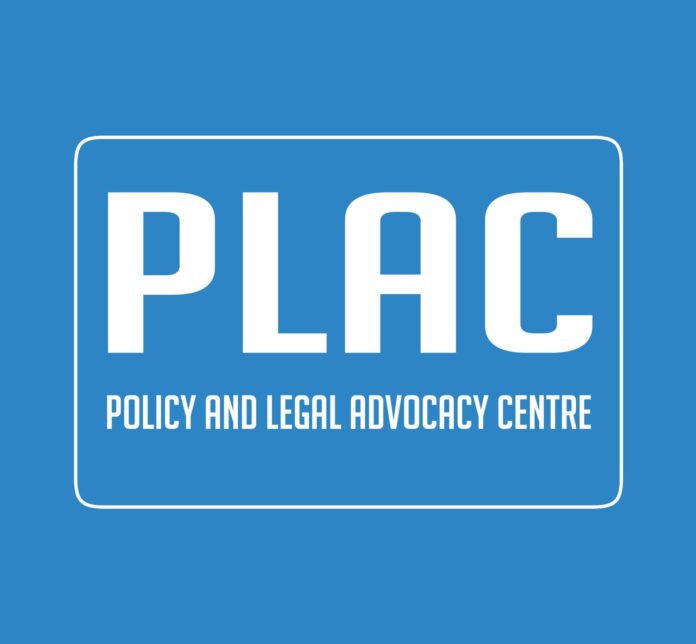Onyebuchi Ezigbo in Abuja
Policy and Legal Advocacy Centre (PLAC) has blamed federal and state governments for not doing enough to actualise wider inclusion of female and persons with disability in the governance of the country.
It said that most of the efforts of government in ensuring inclusive electioneering process were often thwarted by poor implementation.
However, the centre said that increasing participation of the marginalised groups in the electoral process will positively enhance their influence in policy decisions.
A report of a study on inclusivity in Nigeria’s elections policy carried out by PLAC with support from Macarthur Foundation made available to THISDAY, identified poor implementation framework non- criminalisation of violators of the electoral Act as a major hinderance in the quest to ensure level playground for political contest.
The report said that another factor is the non-inclusion of more women and people with disabilitie (PWDs) in legislative institutions and framework.
“There is widespread disaffection by respondents about poor participation of the community of PWDs or IDPs in the legislative process such as lawmaking,” it said.
The study, which was meant to proffer ways to enhance the participation of marginalised groups in politics ahead of the 2023 general elections, recommended that government should partner civil society organisations(CSOs) to promote Inclusive political participation and representation.
Executive Director, PLAC, Mr. Clement Nwankwo, while speaking at the unveiling of the report in Abuja said the step is necessary because Nigeria suffers from declining civic participation in elections, with women, youths and PWDs being the most affected.
He said that the CSO convened the National Roundtable on Inclusive Elections to develop a shared understanding of the issue of declining civic engagement in Nigeria and agree on best practices for inclusive elections, as we head to the 2023 general elections.
“I think that we all have to capture everyone to ensure that no one is on the fringes of governance. An actual system is that quest for inclusivity.
“There is a lot to do. This has been a very long struggle for a lot of us ,unfortunately, the country has been too slow catching up with the rest of the world in terms of inclusive participation in politics
“So I think it is about time that we all work to increase and improve the participation of all segments of society as we go into the 2023 elections.
“The rest of the world has left us behind, women, young persons, persons with disabilities have a lot of stake in all of the elections
“Therefore, this election is not one that we should all sit and watch, I think it is the election that we should all feel very concerned about the direction the country is going,” he said.
Nwankwo urged all stakeholders to work to bring Nigeria out from where it is presently to a place where everyone would be carried along in politics.
On his part, the representative of MacArthur Foundation, Mr. Dayo Olaide , said that it was important that laws function and work for the people and make provision for the actual participation of people with disabilities as mandated.
“We need to keep pushing, push to get them also recognised and given the right place for equal participation, representation, and democratic processes.
“As the electoral management is charged with the responsibility of organising, conducting elections, to be transparent and accountable ,we all have an important role to track these laws to ensure that those provisions are implemented.
“There are several meetings on strategising on how to ensure that the National Assembly revisits the gender bills, we must partner with them to ensure also that the bills that the senate has passed we can get the house if representative to the same,’’ he said.
He noted that participation of all citizens in formal political processes was fundamental for democracy and election management bodies and stakeholders who have crucial; roles to play in empowering marginalized persons to participate in political processes.
He said that Nigeria’s elections still excludes significant proportions of the population including women, youths and PWDs for instance ,the level of women participation in government is low.
He said that the number of women elected in the National Assembly at the last General Election in 2019 was low as it decreased from 22 to 13 in the House of Representatives.
“This work is a veritable attempt to targeted at examining the efforts of electoral stakeholders towards an improved election administration and consolidation of the democratic process in Nigeria
“A core objective of the study is to promote social inclusion and citizens’ awareness of the electoral process.
“There is no gainsaying the that the advantages of involving all individuals and CSO in policy formulation process ,development of polices and effort geared towards inclusion will reflect the aspirations of citizens.
“One of the major ways of doing this is to allow inclusive electoral processes that will fundamentally impact on the quality of participation by marginalized groups such as women. PWDs and IDPs.’’
He therefore, recommended a strong need for government to partner with CSOs to connect with citizens and stakeholders to promote inclusive political participation and representation.
He also called for more support for special measures to include women. PWDs in political parties and in the Nigerian legislature would increase political participation.


